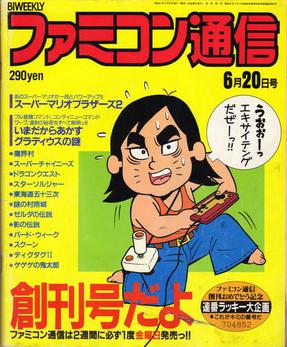
Famitsu, formerly Famicom Tsūshin, is a line of Japanese video game magazines published by Kadokawa Game Linkage, a subsidiary of Kadokawa. Famitsu is published in both weekly and monthly formats as well as in the form of special topical issues devoted to only one console, video game company, or other theme. Shūkan Famitsū, the original Famitsu publication, is considered the most widely read and respected video game news magazine in Japan. From October 28, 2011, the company began releasing the digital version of the magazine exclusively on BookWalker weekly.

Sengoku is a beat 'em up arcade game. It is the first entry of the Sengoku trilogy by SNK. It was ported to numerous home consoles including the Neo Geo, Neo Geo CD, Mega-CD and Super Famicom. The arcade version was part of SNK Arcade Classics Vol. 1, released in 2008. The Neo Geo version was re-released on the Japanese Virtual Console in 2011, with the sequels for the North American Virtual Console on November 8, 2012 and June 6, 2013 and for the PAL region on February 7, 2013 and September 5, 2013. In 2009 the series was compiled on the Sengoku Anthology for PlayStation 2 and Windows.
1991 saw many sequels and prequels in video games, such as Street Fighter II, Final Fantasy IV, Super Castlevania IV, Mega Man 4, Super Ghouls 'n Ghosts, and The Legend of Zelda: A Link to the Past, along with new titles such as Sonic the Hedgehog, Battletoads, Lemmings, Sunset Riders, Duke Nukem, Fatal Fury: King of Fighters, and Streets of Rage. The year's highest-grossing video game worldwide was Capcom's arcade fighting game Street Fighter II. The year's best-selling system was the Game Boy for the second year in a row, while the year's best-selling home video game was Sega's Sonic the Hedgehog, which was also the year's top video game rental in the United States.
1990 saw many sequels and prequels in video games, such as Metal Gear 2: Solid Snake, Dr. Mario, Dragon Quest IV, Final Fantasy III, Phantasy Star II, and Super Mario World, along with new titles such as Fire Emblem: Shadow Dragon and the Blade of Light and Magic Sword. The year's highest-grossing arcade video games were Final Fight in Japan and Teenage Mutant Ninja Turtles in the United States. The year's best‑selling system was the Game Boy, while the year's best-selling home video game was Super Mario Bros. 3 for the Nintendo Entertainment System.
1988 saw many sequels and prequels in video games, such as Dragon Quest III, Super Contra, Super Mario Bros. 2, Mega Man 2, Double Dragon II: The Revenge, and Super Mario Bros. 3, along with new titles such as Assault, Altered Beast, Capcom Bowling, Ninja Gaiden, RoboCop, Winning Run and Chase H.Q.
1987 saw many sequels and prequels in video games, such as Castlevania II: Simon's Quest, Dragon Quest II, Final Lap, and Zelda II, along with new titles such as After Burner, Contra, Double Dragon, Final Fantasy, Mega Man, Metal Gear, Operation Wolf, Phantasy Star, Shinobi, Street Fighter and The Last Ninja. The Legend of Zelda was also introduced outside of Japan.
1986 saw many sequels and prequels in video games, such as Super Mario Bros. 2, along with new titles such as Arkanoid, Bubble Bobble, Castlevania, Dragon Quest, Ikari Warriors, The Legend of Zelda, Metroid, Out Run and R.B.I. Baseball. The year's highest-grossing arcade video games were Hang-On in Japan, Hang-On and Gauntlet in the United States, and Nemesis (Gradius) in London. The year's best‑selling home system was the Nintendo Entertainment System (Famicom) for the third year in a row, while the year's best-selling home video games in Western markets were Super Mario Bros. in the United States and Yie Ar Kung-Fu in the United Kingdom.

Famicom Wars is a wargame developed by Nintendo and Intelligent Systems and published by Nintendo for the Family Computer. It was released on August 12, 1988, in Japan. It was later re-released on Virtual Console. It is the first game in the Wars series.

Shinobi Legions, known as Shinobi X in Europe and as Shin Shinobi Den in Japan, is an action game in the Shinobi series developed and published by Sega in 1995 for the Sega Saturn.

Ganbare Goemon: Sarawareta Ebisumaru! is a Game Boy game released in 1991 and the first game in the Ganbare Goemon series ever released for a portable system. Gameplay is similar to Ganbare Goemon! Karakuri Dōchū which was released on the Famicom. Only Goemon is playable, and the game consists of him rescuing Ebisumaru; Sasuke and Yae do not make appearances.
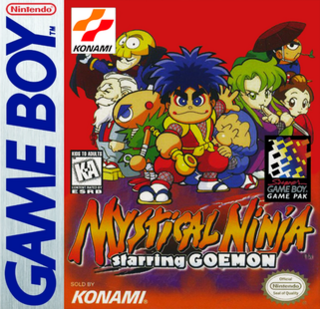
Mystical Ninja Starring Goemon is a Ganbare Goemon series Game Boy game released in 1998. Featuring gameplay similar to the Super Famicom title Ganbare Goemon 3: Shishijūrokubē no Karakuri Manji Gatame, the game presents a new story in which Yae has been kidnapped by the Black Ship Gang. Its release immediately followed the Nintendo 64 game of the same name.
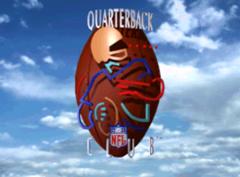
NFL Quarterback Club is an American football video game for multiple platforms that features quarterbacks from the NFL. It is the first game in Acclaim Entertainment's NFL Quarterback Club series.

Takeru: Letter of the Law is a video game based on the manga series by Buichi Terasawa. It was originally released by Matsushita Electric Industrial for the 3DO Interactive Multiplayer only in Japan as Terasawa Buichi no Takeru (寺沢武一の武), before being converted to the Microsoft Windows and Mac OS computer systems and published internationally Takeru: Letter of the Law and Buichi Terasawa's Takeru in 1996. The manga was published in English in 1992-1993 as Takeru - The Bad Boy of Yamato.
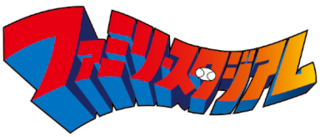
Family Stadium, also known as Pro Yakyū: Family Stadium and Famista, is a series of baseball sports video games initially developed and released by Namco in Japan, and later developed and published by Bandai Namco Entertainment. The first entry in the series, Pro Baseball: Family Stadium, was released for the Nintendo Family Computer in 1986 and later in North America as R.B.I. Baseball, with the series being released on numerous home consoles, the latest being Pro Yakyuu Famista 2020 in 2020 for the Nintendo Switch. The series is considered a precursor to Namco's own World Stadium series of baseball games, released for arcades, PlayStation, and GameCube. The series has been a commercial success since, with over 15 million copies being sold as of 2016.
F1 Circus is a Formula One-based racing game developed by Nihon Bussan and published by Nichibutsu for the PC-Engine.
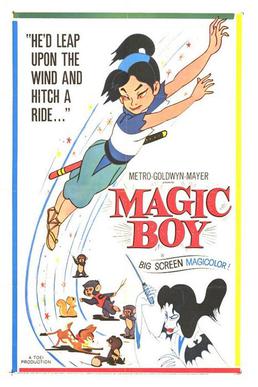
Magic Boy, known in Japan as Shōnen Sarutobi Sasuke, is a 1959 Japanese animated feature film released on December 25, 1959. Released as Toei Animation's second theatrical anime, the film was released in theaters in the United States by Metro-Goldwyn-Mayer on June 22, 1961, making it the first anime film to be released in the country, followed by The Tale of the White Serpent on July 8, 1961.
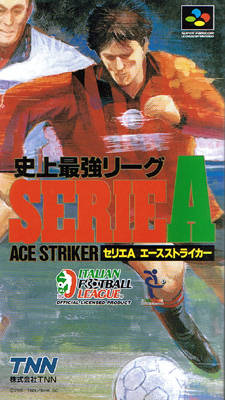
Shijō Saikyō League Serie A: Ace Striker is a 1995 Japan-exclusive football video game for the Super Famicom.

Otoboke Ninja Colosseum is a Japan-exclusive action strategic, maze-based video game, developed by Mint and published by Intec, which was released in 1995.

Ultra League: Moero! Soccer Daikessen!! is a 1995 Japan-exclusive soccer-based video game released for the Super Famicom. The game features the Japanese super hero Ultraman, among other monsters and aliens.

Final Stretch (ファイナル・ストレッチ) is a 1993 Japan-exclusive Super Famicom Formula One racing video game licensed by FOCA to Fuji Television, which is based on the 1993 Formula One season.














